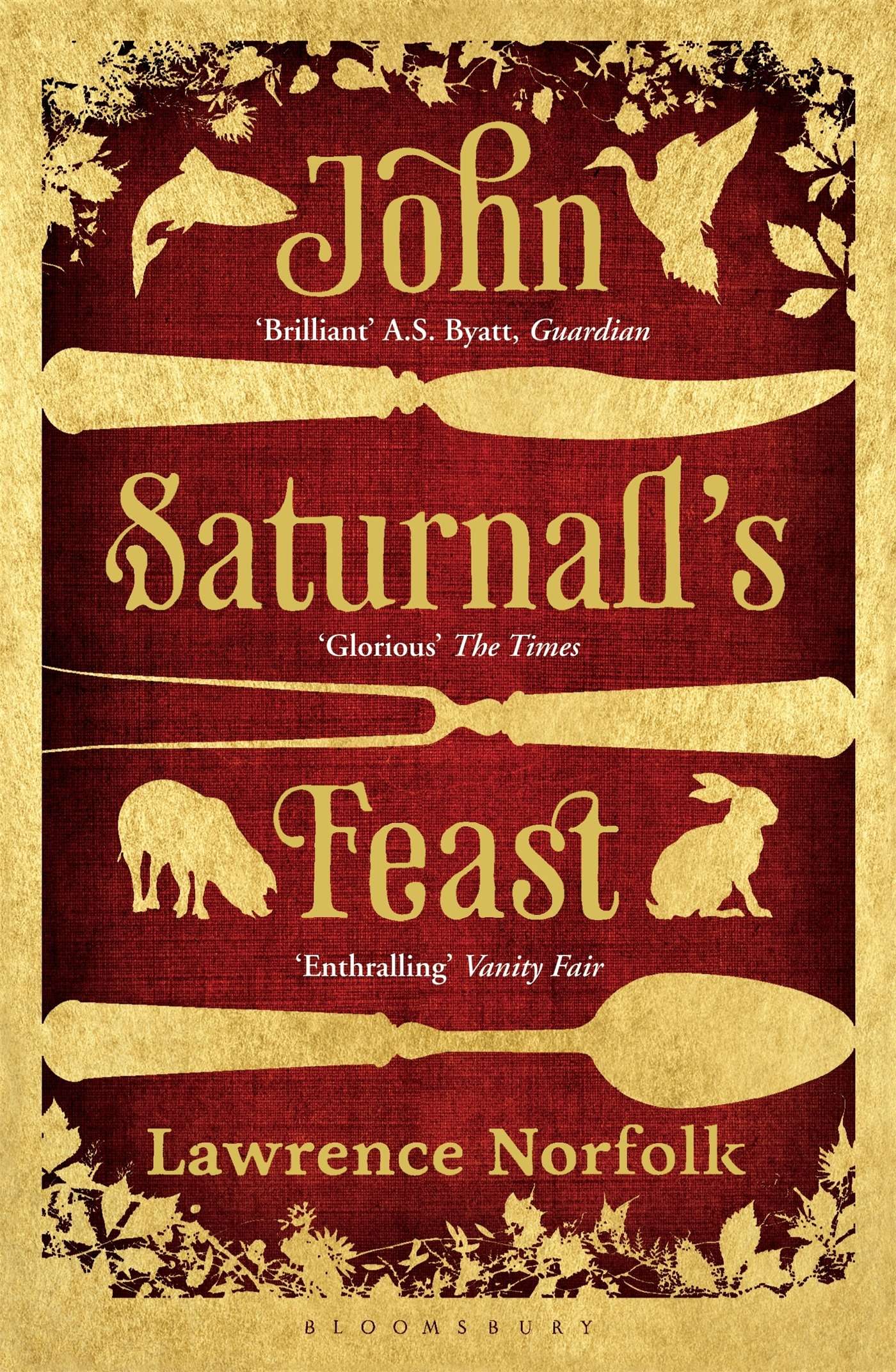John Saturnall’s Feast, by Lawrence Norfolk
Set in Britain and opening in 1625, we are introduced to young John, a village outcast due to taunts of his mother being a witch (actually she’s a skilled midwife, sought out in the cover of night by those desperate for healing). When mother and son are forced to flee their home before the onslaught of religious fervor, they seek refuge in the deep haunt of Buccla’s Wood, a place steeped in mystic lore. To stave off boredom and growing hunger, John’s mother teaches him from the mysterious book that she
had carried with her from their burning hut.

‘They wrote it down, those first men and women.’ His mother laid her palm flat on the book. ‘In here. And those that came after them wrote it anew, generation upon generation. They hid their garden in the Feast. Every green thing that grew. Every creature that thrived. They all had their place at Saturnus’s Table.’
As winter comes, John’s mother teaches him to read from the words that accompany the fantastical illustrations in the book. He learns herbs and seasonings, the names of plants that had been buried deep in lost culinary knowledge, the preparation of all sorts of wondrous dishes and fanciful concoctions.
John’s mother knows he has the gift of the master cook, just as she knew that it was his calling to maintain the Feast. “Now you will keep it, John. For us all.” The book becomes more than knowledge; it becomes sustenance itself.
One frigid day John returns to their hiding place to find his mother dead and the book burned, and he knows he must strike out on his own, holding within himself the knowledge of the Feast of the generations that had come before and now lives only within him.
Before long, he is caught and delivered to William Freemantle, Lord of the Vale of Buckland. Once there, the dirty and withdrawn child catches the eye of the Master Cook (due to a chance demonstration of his ability to identify the spicing of a prepared dish), and the bigger story of John’s destiny begins.
From humble beginnings spent scrubbing dishes and pots, John – who has now taken the surname of Saturnall – rises in the ranks of the kitchens of Buckland Manor. He catches the attention of Lord Fremantle’s daughter, the lonely and sequestered Lady Lucretia, who gives him an early lesson in status and station as well as the frailty of trust.
But John survives and even thrives in the kitchens of Buckland, learning and eventually creating dishes both simple and exotic. Yet even the remote Vale of Buckland is affected by the waves of religious and political zeal that threaten to tear Britain apart; loyalty to King and country can become a liability as Cromwell seizes power, and the specter of armed conflict can touch the lives of the lowliest servant as surely as it does their masters.
Rich in history viewed not from the heights of power but from the everyday realities of hearth and home of a self-sustaining landholding buffeted by the ambitions of potentates and madmen, John Saturnall’s Feast blends historical fact with a mystical sensibility based in the palate and settled in the stomach. Each chapter is prefaced by an illustration and narrative as if from a 17 th century cookbook, not only setting the look and tone, but giving the modern reader insight into (at least what feels like) genuine
food preparation of an earlier time.
Some of the story is a bit contrived, and sometimes the misdirection that Mr. Norfolk uses to create tension is confusing, but generally the writing is engaging and fresh. When you have a well written story encompassing a historical period that has captured society’s imagination, the effect is magical. Add to that the always compelling tale of a youngster’s growing maturity despite (or even because of) adversity and you have a winning novel. John Saturnall’s Feast excels in all these points, with a seasoned and
flavorful delivery that pleases the sensibilities, and leaves the reader full and sated once the book is finished. Would that all our literary feasts could be this satisfying!
—Sharon Browning

